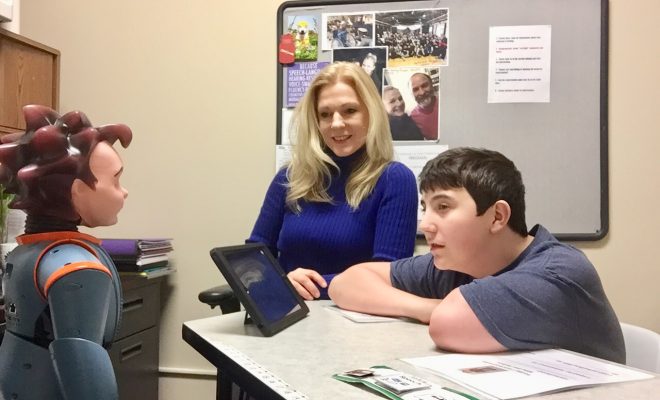Why scholars emphasize the need for affirmative action

Kalpana Jain, The Conversation
Supreme Court Justice Antonin Scalia, during oral arguments in the affirmative action case, Fisher v University of Texas, on Wednesday, December 9, suggested,
There are those who contend that it does not benefit African-Americans to get them into the University of Texas, where they do not do well — as opposed to having them go to a less advanced school, a slower-track school where they do well.
Justice Scalia is no stranger to controversy. In an earlier Supreme Court ruling upholding Obamacare tax credits for people on the federal exchange in June 2015, Justice Scalia was scathing in his dissent from the majority opinion.
Writing for The Conversation, Robert Schapiro, dean and professor of Law , Emory University, said:
When Justice Scalia gets mad, he does not hold back. He has often adopted fairly sharp language in his dissents but even by that standard, his dissent in King v Burwell is extraordinary in tone…. His vituperation reaches a crescendo in the conclusion where he snipes, “We should start calling this law SCOTUScare.”
Scholars and journalists alike have emphasized the seminal nature of the Fisher v University of Texas case. Indeed, a number of our contributors have argued that the case could exacerbate the racial tensions that have been evident through protests on campuses around the country.
Clearly, following this week’s oral arguments, the world of social media was on fire. Students and others tweeted at hashtag #scalia. Some even denounced Scalia’s comments with a hashtag of “#impeachscalia.”
Why the case is pivotal
Scholars argue that the judgment in the case will influence not only the admissions policies at UT, but in colleges and universities across the nation. And that could have consequences not just for diversity in education, but also for the educational success of students of color.
Liliana M Garces, an assistant professor at Pennsylvania State University, who served as counsel of record in a friend-of-the-court brief filed in support of the University of Texas at Austin when the case was before the court in 2012, said:
We might not think that admissions policies can have an influence on the work of administrators charged with supporting students of color once they are on campus, but findings from a more recent study suggest that the influence of these laws extend beyond the composition of the student body. Bans on affirmative action can have a detrimental influence on work that is critical to the success of students of color on campus.
Garces’ research also shows that after eight states banned affirmative action, via ballot initiatives and other measures, there was a drop in the number of students of color.
Before bans on affirmative action, for every 100 students matriculated in medical schools in states with bans, there were 18 students of color, whereas after the ban, for every 100 students matriculated, about 15 were students of color.
The case came before the Supreme Court after Abigail Fisher, a white female, applied to the University of Texas at Austin and was denied admission. She sued the university stating the university’s race-conscious admissions policy violated the equal protection clause of the Fourteenth Amendment. A lower court decided in UT’s favor.
In 2013, however, the Supreme Court sent the case back to the lower court to conduct a more rigorous assessment of whether UT Austin needed to consider race in admissions.
Garces with her coauthor, Gary Orfield, a professor of education, law, political science and urban planning at University of California, Los Angeles, makes a strong argument that the decision in the case could affect affirmative action policy in higher education in general.
While the case raises questions specific to UT-Austin’s program, it is also possible that the Supreme Court may further limit the use of race in higher education admissions policies for institutions across the nation.
Other scholars underline the importance of looking at the historical context of the origins of affirmative action.
Tanya Washington, professor of law at Georgia State University, says:
Franklin D Roosevelt was the first president to issue an executive order prohibiting racial discrimination in hiring defense contractors in 1943. But it was President John F Kennedy who, in an executive order in 1961, coined the term “affirmative action” to stop racial discrimination by government contractors. Subsequently, state and local governments, including universities, were inspired to introduce similar programs to promote equal opportunity.
In her article, Washington refers to the recent protests on campuses across the country. Black students continue to experience hostility because of their skin color.
Colleges and universities, she says, urgently need policies to address these challenges.
One such existing policy includes the limited consideration of race in admission decisions. This policy allows institutions to build a racially and ethnically diverse student body.
What is happening globally?
Policymakers in the US are not the only ones to have pushed for affirmative action.
Michele S Moses, professor of Educational Foundations and Policy, University of Colorado and Laura Dudley Jenkins, associate professor of Political Science, University of Cincinnati, argue that about one-quarter of the world’s other countries have some form of affirmative action for higher education. And many of these programs have emerged over the last 25 years.
A wide variety of institutions and governments on six continents have programs to expand admissions of non-dominant groups of students on the basis of race, gender, ethnicity, class, geography, or type of high school. Several use a combination of these categories.
In fact, as they point out, “the United States’ affirmative action policies in higher education are not the oldest: India’s policies for lower caste students take that prize.”
And this should give policy makers in the US pause, “given that US policies are older than most, much of the cutting edge thinking on the topic is now coming from other parts of the world.”
![]()
Kalpana Jain, Editor, The Conversation
This article was originally published on The Conversation. Read the original article.






